In today’s dynamic music industry landscape, organizing a successful music business conference requires more than just great content and speakers—it demands a robust and efficient event ticketing software system.
Whether you’re planning an intimate industry gathering or a large-scale conference, selecting the right ticketing platform can significantly impact your event’s success. This comprehensive guide explores the essential features and considerations for choosing a ticketing platform that will elevate your music business conference to new heights.
Understanding the Importance of Your Event Ticketing Platform Choice
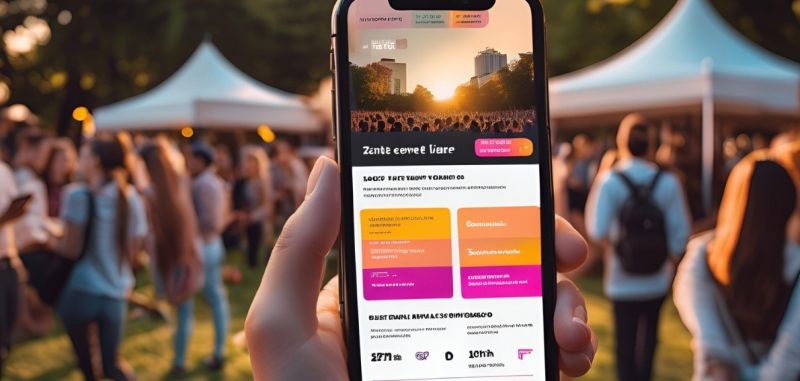
The foundation of any successful conference lies in its ability to manage attendees effectively, and your ticketing platform serves as the gateway to this experience. A well-chosen event ticketing system doesn’t just process payments—it becomes an integral part of your event’s infrastructure, handling everything from registration to attendance tracking, while providing valuable insights along the way.
Also Read: An Essential Guide for Music Business Conference Planning
For music business conferences specifically, the stakes are even higher. Your audience, comprising industry professionals, artists, and enthusiasts, expects a seamless and professional experience from the moment they decide to purchase tickets. The right platform can help deliver this experience while streamlining your operations and enhancing security.
What is an Event Ticketing Platform?
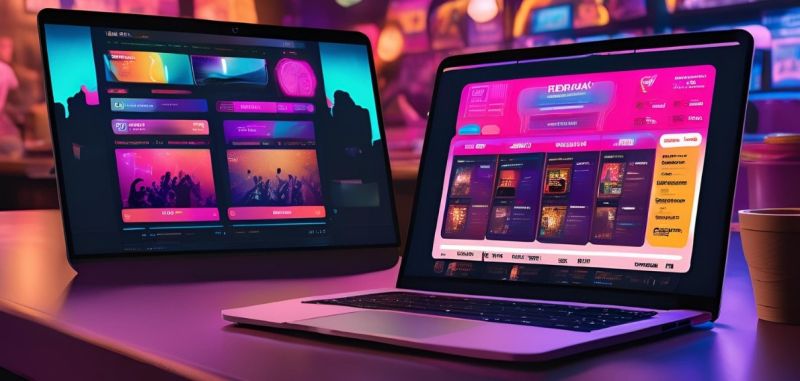
An event ticketing platform is a comprehensive software solution designed to help event organizers create, manage, and sell tickets for their events online. These platforms offer a variety of features and tools that streamline the ticketing process, making it easier for organizers to handle everything from event page creation to ticket pricing and inventory management. With an event ticketing platform, you can efficiently process payments and manage attendees, ensuring a smooth experience for both organizers and attendees.
Event ticketing platforms are versatile and can be used for a wide range of events, including concerts, festivals, conferences, and more. By leveraging these platforms, event organizers can sell tickets online, manage multiple events, and provide a seamless ticket-buying experience for their audience.
Benefits for Event Organizers
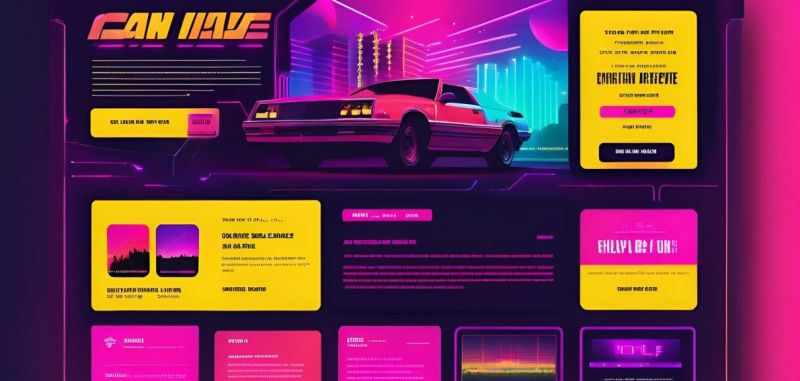
Using a ticketing platform offers numerous benefits for event organizers, enhancing both the planning and execution of events:
- Increased Ticket Sales: By providing an easy and convenient way for attendees to purchase tickets online, event organizers can boost ticket sales and maximize revenue.
- Improved Event Management: Event ticketing platforms come equipped with a range of tools to help organizers manage their events more efficiently. This includes attendee management, ticket inventory management, and streamlined payment processing.
- Enhanced Attendee Experience: A seamless and user-friendly ticket-buying experience can significantly improve attendee satisfaction and loyalty, encouraging repeat attendance at future events.
- Valuable Insights: Event ticketing platforms offer valuable data and insights on ticket sales, attendee demographics, and overall event performance. This information can be used to refine marketing strategies and improve future events.
Creating an Intuitive User Experience

The success of your ticketing system begins with its user interface. Customized event pages can significantly enhance the user experience by providing integrated ticket sales and maintaining a unique identity for your conference. Your chosen platform must prioritize user experience for both attendees and organizers. When potential attendees visit your ticketing page, they should encounter a clean, intuitive interface that guides them effortlessly through the purchase process.
Using a platform like Ticket Fairy, setting up a completely customized event page becomes a seamless process. Organizers have the option to add high quality images, such as posters and artist press shots, as well as customizations for fonts, background displays, and much more. A user-friendly and neat event page is key to ticket sales, and with Ticket Fairy, ensuring your event page is on-brand, clean and quick to respond.
Also Read: 4 Simple Ways To Take Your Event Page To The Next Level
Mobile optimization has become non-negotiable in 2025, as an increasing number of professionals prefer to handle their ticketing needs on smartphones. Your platform should offer responsive design that adapts seamlessly to different screen sizes and devices, ensuring a consistent experience across all platforms.
For event organizers, the backend system should provide comprehensive yet straightforward tools for managing sales, tracking registrations, and handling customer support. An efficient backend saves valuable time and resources, allowing your team to focus on other crucial aspects of conference planning.
Personalizing Your Event’s Digital Presence
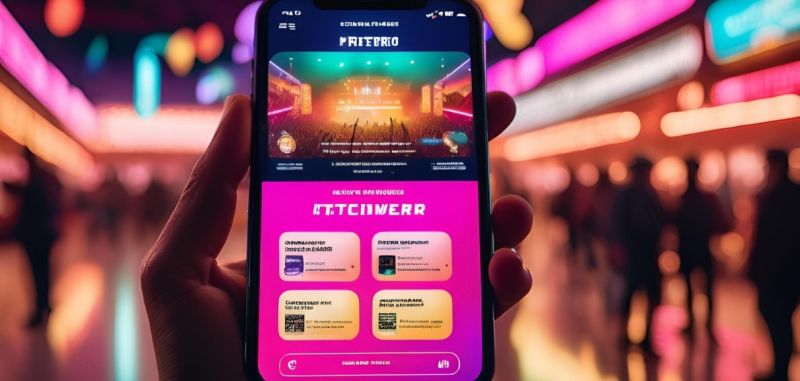
Your music business conference has its unique identity, and your ticketing platform should reflect this distinctiveness. Look for platforms that offer extensive event management features, such as ticketing, capacity tracking, and automation for attendee communication. Modern platforms like Ticket Fairy offer extensive customization options that allow you to maintain brand consistency throughout the ticket purchasing journey. This includes the ability to incorporate your logo, brand colors, and specific design elements that align with your conference’s theme.
Beyond aesthetic customization, look for platforms that allow you to tailor the registration process to your specific needs. This might include creating custom ticket types, from VIP passes to early-bird specials, or designing registration forms that capture essential attendee information. The ability to showcase your conference schedule, featured speakers, and sponsors directly on the ticketing page can help drive conversions by providing valuable information upfront.
Also Read: Top Event Ticketing Platforms: Which One’s Best for Your Events
Implementing Secure and Flexible Payment Solutions

In today’s digital economy, offering diverse payment options is crucial for maximizing online ticket sales. Your platform should support traditional payment methods like credit cards while also accommodating modern alternatives such as digital wallets and contactless payments. Some platforms have even begun accepting cryptocurrency payments, which can be particularly attractive for tech-forward attendees and international participants.
Security remains paramount in payment processing. Ensure your chosen platform maintains robust security measures, including PCI compliance and encrypted transactions. Platforms like Ticket Fairy also offer clear policies and procedures for handling refunds, cancellations, or ticket transfers, providing peace of mind for both organizers and attendees.
Event Ticketing Platform Fees

Event ticketing platforms typically charge fees for their services, which can vary based on the platform and the type of event. Understanding these fees is crucial for budgeting and financial planning:
- Per-Ticket Fees: Some platforms charge a fee for each ticket sold, which can range from a few cents to several dollars per ticket.
- Percentage-Based Fees: Other platforms may charge a percentage of the ticket price, typically ranging from 2-10% or more.
- Flat Fees: Some platforms offer a flat fee per event, which can range from $50 to $500 or more, depending on the platform and event size.
- Payment Processing Fees: Additionally, platforms may charge a fee for payment processing, usually ranging from 2-5% or more.
Using Ticket Fairy, organizers also have the option to pass fees over to customers, which provides flexibility spanning all event types. Specifically in the case of music conferences, this option proves beneficial when dealing with budget constraints.
Leveraging Data Analytics for Event Success

Modern event management requires data-driven decision-making, and your ticketing platform should serve as a valuable source of insights. Tracking attendee demographics can also help you promote upcoming events more effectively. Look for platforms that offer comprehensive analytics capabilities, allowing you to track sales patterns, monitor registration trends, and understand attendee demographics in real-time.
These insights can prove invaluable for making informed decisions about marketing strategies, capacity planning, and content programming. For instance, tracking which ticket types are selling fastest or which geographic regions show the most interest can help you adjust your promotional efforts and resource allocation accordingly.
Pro Tip: Using Ticket Fairy’s intelligent analytics, organizers can collect data on several events and deploy these audience analytics for new events, equipping them with proven past data unique to their events and audience base.
Planning for Growth and Scalability

As your music business conference evolves, your ticketing platform should be able to grow alongside it. Scalability encompasses both technical and functional aspects. The platform must handle increased traffic and transaction volumes without performance degradation, especially during peak selling periods or when early-bird tickets are released.
Functional scalability involves the platform’s ability to accommodate more complex ticketing structures as your event grows. This might include managing multiple ticket tiers, handling concurrent sessions or workshops, and coordinating different access levels for various attendee categories.
Also Read: Anti Scalping for Event Management: Why These Measures Are Essential – A Complete Guide
Maximizing Marketing Potential
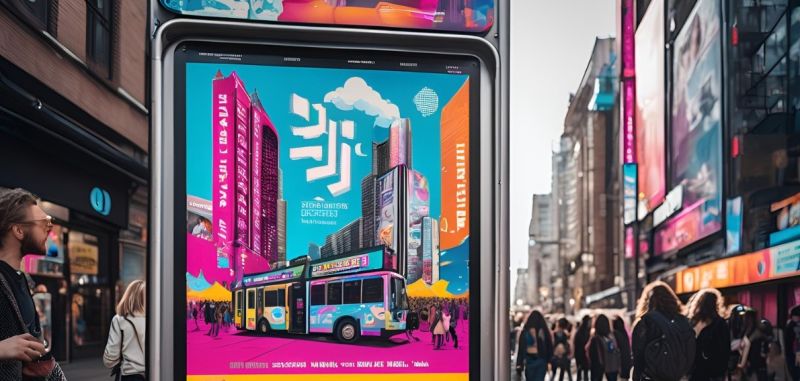
Your ticketing platform should do more than just process sales—it should actively contribute to your marketing efforts by selling tickets effectively. Platforms like Ticket Fairy offer integrated marketing tools, such as email campaign functionality, social media integration, and promotional code capabilities. These features can help you reach a wider audience and drive ticket sales more effectively.
Advanced platforms often include features for creating and tracking promotional campaigns, managing affiliate relationships, and implementing dynamic pricing strategies. The ability to easily share event information across social networks and enable attendees to promote their participation can significantly expand your reach through word-of-mouth marketing.
Also Read: Ticket Fairy: An Event Promoter’s Platform
Streamlining Access Control and Onsite Management

The day of your conference, your ticketing platform transforms into an essential tool for managing attendee access and flow. Modern access control features are essential for managing any live event efficiently. Modern access control features like QR code scanning and digital check-in systems can significantly reduce wait times and improve the entry experience.
Some platforms offer sophisticated solutions such as RFID wristbands or smart badges, which can facilitate seamless access to different conference areas and enable cashless payments for merchandise or refreshments. Some platforms may even offer standalone apps such as Ticket Fairy’s Entry Fairy app, which provides real-time scanning and tracking of ticket sales and inventory. Scanning tickets at a particular event across different devices has also proven essential for seamless team-managed task tracking, with all data available on the platform’s highly intuitive organizer dashboard.
These technologies not only enhance the attendee experience but also provide valuable data about participant movement and engagement throughout your event. This information can help you optimize future conferences and demonstrate value to sponsors and stakeholders.
Ensuring Reliable Support and System Integration

Even the most sophisticated platform requires backing from responsive customer support. When evaluating options, consider the availability and quality of technical support offered by the platform provider. Look for providers that offer multiple support channels and demonstrate a thorough understanding of the unique challenges faced by music business conference organizers.
Integration capabilities are equally important. Your event ticketing software should work seamlessly with other essential tools in your event management stack, such as CRM systems, marketing automation platforms, and event apps. Smooth integration reduces manual work and ensures consistent data flow across all your systems.
Embracing Sustainable Event Management

Environmental consciousness has become increasingly important in event planning, and your ticketing platform can play a crucial role in reducing your conference’s environmental impact. Supporting virtual events can also contribute to sustainability by reducing the need for travel and printed materials.
Digital ticketing solutions eliminate the need for printed tickets, while mobile check-in processes reduce paper waste. Some platforms now offer features for tracking and offsetting your event’s carbon footprint, allowing you to demonstrate your commitment to sustainability to environmentally conscious attendees.
Also Read: 25 Eco-Friendly Themes For Your Next Music Event
Making Your Final Platform Selection

Choosing the right online ticketing platform for your music business conference requires careful consideration of multiple factors. Beyond basic functionality, consider how well the platform aligns with your specific needs, budget, and growth plans. Request demos from potential providers and ask detailed questions about their features, support services, and pricing structures.
Remember that the right platform should not only meet your current needs but also accommodate your future growth. Consider factors like contract length, pricing scalability, and the provider’s track record of innovation and feature development. Some platforms may require you to get in touch with their sales team to get your hands on their organizer apps and dashboards; Ticket Fairy lets you create an event in three simple steps, enabling organizers to test the platform and evaluate its features.
Reading Reviews and Asking for Referrals

When selecting an event ticketing platform, it’s essential to read reviews and ask for referrals from other event organizers. This can provide valuable insights into the platform’s strengths and weaknesses, as well as its reputation in the industry. Consider asking the following questions when evaluating reviews and referrals:
- What features and tools does the platform offer?
- How easy is the platform to use?
- What kind of customer support does the platform provide?
- How does the platform handle payment processing and ticket inventory management?
- What kind of fees does the platform charge?
By gathering this information, you can make a more informed decision and choose a platform that best meets your needs.
Tips for Event Organizers: Summarized

Here are some practical tips for event organizers when using an event ticketing platform:
- Choose a User-Friendly Platform: Select a platform that is easy to use and provides a seamless ticket-buying experience for attendees.
- Ensure Necessary Features: Make sure the platform offers the features and tools you need to manage your event effectively, such as attendee management and payment processing.
- Read Reviews and Ask for Referrals: Gain insights into the platform’s reputation and strengths by reading reviews and asking for referrals from other event organizers.
- Understand Fees: Carefully review the platform’s fees and pricing structure to ensure it aligns with your event budget.
- Utilize Analytics: Use the platform’s analytics and reporting tools to gain valuable insights into ticket sales and attendee demographics, helping you improve future events.
By following these tips, you can maximize the benefits of your event ticketing platform and ensure the success of your music business conference.
Investing in Your Conference’s Future

The success of your music business conference depends significantly on the tools you choose to manage event tickets. A well-selected ticketing platform serves as more than just a transaction processor—it becomes a crucial partner in delivering an exceptional experience for your attendees while streamlining operations for your team.
As you evaluate different platforms, focus on finding a solution that combines user-friendly interfaces, robust features, and reliable support with the flexibility to grow alongside your event. By carefully considering each aspect discussed in this guide, you’ll be better equipped to choose a platform that not only meets your immediate needs but also supports your conference’s long-term success in the evolving landscape of music industry events.
Frequently Asked Questions
How do event ticketing platform fees typically work, and what should I budget for when planning my music business conference?
Event ticketing platform fees can be complex and vary significantly between providers. Most platforms employ a multi-tiered fee structure that includes several components. The primary fee types include per-ticket charges, which can range from $0.50 to several dollars per ticket, depending on the ticket price and platform. Percentage-based fees typically range from 2% to 10% of the ticket price, with premium platforms often charging on the higher end for additional features and services.
Many platforms also charge payment processing fees, usually between 2.5% and 3.5% plus a fixed amount per transaction. Some platforms offer flat-rate packages for events, which might cost anywhere from $50 to $500 or more monthly, depending on your event size and requirements. When budgeting, it’s essential to consider hidden costs such as setup fees, customer support packages, or charges for additional features like custom branding or advanced analytics.
To accurately budget for platform fees, calculate the total cost using your expected ticket volume and price points. For example, if you’re selling 1,000 tickets at $100 each, a platform charging 5% plus $1 per ticket and 3% for payment processing would cost you $9,000 in total fees ($5,000 from the percentage fee, $1,000 from per-ticket fees, and $3,000 from payment processing). Always read the fine print and negotiate fees for large-volume events.
What security features should I look for in a ticketing platform to protect both my conference and attendees?
Security in ticketing platforms should be multi-layered and comprehensive, protecting both financial transactions and personal data. First and foremost, look for platforms that maintain PCI DSS (Payment Card Industry Data Security Standard) compliance, which ensures they meet the strict security standards required for processing credit card payments. The platform should use SSL/TLS encryption for all data transmission and implement strong data protection measures for stored information.
Advanced fraud prevention features are crucial, including automated systems that can detect and flag suspicious purchasing patterns, such as bulk buying from single IP addresses or unusual transaction timing. The platform should offer secure authentication methods for both organizers and attendees, potentially including two-factor authentication for admin access and unique, encrypted ticket codes for attendees.
For onsite security, look for platforms that provide sophisticated ticket validation systems, such as dynamic QR codes that change periodically to prevent counterfeiting, or RFID technology for secure access control. The platform should also maintain detailed audit trails of all transactions and ticket transfers, allowing you to track any suspicious activity and maintain accountability.
Additionally, ensure the platform has robust privacy features that comply with relevant regulations like GDPR and CCPA, including clear data handling policies and the ability to manage attendee consent for data collection and usage. The platform should also provide secure methods for handling refunds and ticket transfers while maintaining an audit trail of all changes.
How can I leverage a ticketing platform’s analytics tools to improve my conference’s success?
Modern ticketing platforms offer powerful analytics capabilities that can significantly impact your event’s success when used effectively. The key is understanding how to interpret and act on the data provided. Start by analyzing purchasing patterns, including peak buying times, popular ticket types, and common customer journey paths. This information can help you optimize your pricing strategy and marketing campaigns.
Demographic data collected through the platform can provide valuable insights into your audience composition, including geographical distribution, industry sectors, and professional roles. Use this information to tailor your conference content and marketing messages to your actual audience profile. Track conversion rates at different price points and through various marketing channels to understand which strategies are most effective.
Real-time analytics during ticket sales can help you make dynamic adjustments to your strategy. For example, if certain ticket types are selling faster than others, you can adjust pricing or allocation accordingly. Monitor abandoned cart rates and drop-off points in the purchase process to identify and address any friction points that might be affecting sales.
Post-event analytics are equally important. Analyze attendance patterns, session popularity, and engagement metrics to inform future event planning. Compare data across different events or years to identify trends and areas for improvement. The platform’s analytics should also help you calculate key metrics like customer acquisition costs and return on investment for various marketing initiatives.
What integration capabilities should I prioritize when selecting a ticketing platform for my music business conference?
Integration capabilities are crucial for creating a seamless event management ecosystem. Priority should be given to platforms that offer robust API access and pre-built integrations with popular business tools. Essential integrations include CRM systems like Salesforce or HubSpot, which allow you to maintain comprehensive attendee profiles and track customer interactions across multiple touchpoints.
Email marketing platform integration is vital for automated communication workflows, enabling you to send targeted messages based on ticket purchase behavior, attendee type, or registration status. Look for platforms that integrate with major email services like Mailchimp or Campaign Monitor. Social media integration capabilities should allow for easy sharing of ticket purchases and event information, while also enabling social selling features.
Integration with event apps and mobile platforms is increasingly important, as these tools enhance the attendee experience through features like personalized schedules, networking opportunities, and real-time updates. The platform should also integrate with accounting software for streamlined financial reporting and reconciliation, as well as with popular payment gateways to offer various payment options.
Consider platforms that offer webhook functionality, allowing you to create custom integrations with other tools in your tech stack. This flexibility can be particularly valuable for connecting with industry-specific software or internal systems. The platform should also provide detailed documentation and support for implementing and maintaining these integrations.
How can I ensure my ticketing platform effectively handles last-minute changes and onsite requirements during the conference?
Managing last-minute changes and onsite operations requires a platform with flexible, real-time capabilities. The platform should allow for immediate updates to ticket availability, pricing, and access permissions, even during the event. Look for systems that offer a dedicated mobile app or web interface for onsite management, enabling staff to handle check-ins, troubleshoot issues, and modify attendee information on the fly.
The platform should provide robust contingency features, such as the ability to quickly generate new tickets, transfer registrations, or modify access levels without disrupting the overall event flow. Real-time synchronization between all check-in points is essential to prevent duplicate entries and ensure accurate attendance tracking. The system should also handle walk-up registrations efficiently, with the ability to process payments and generate tickets instantly.
For last-minute communications, the platform should offer multi-channel notification capabilities to reach attendees through email, SMS, and push notifications. This is crucial for communicating schedule changes, room changes, or other important updates during the event. The system should also provide flexible reporting tools for real-time attendance tracking and capacity management.
Consider platforms that offer offline functionality in case of internet connectivity issues, allowing continued check-in and ticket validation even without a network connection. The system should automatically sync data once connectivity is restored. Additionally, look for platforms that provide onsite support options or rapid response times for technical issues that may arise during the event.
You May Also Like:
The Essentials Of Creating A Stunning Event Page
SEO Tips for Event Organizers: The Ultimate Guide to Boost Your Event’s Online Visibility in 2025
Boost Event Sales: Master Pixel Tracking for Ticket Conversions


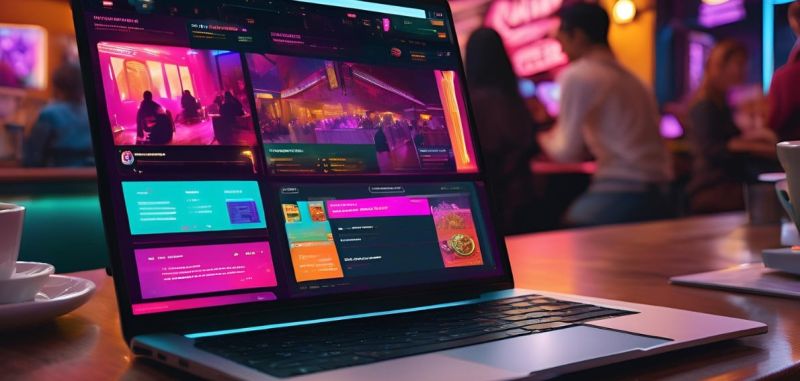
 6th June 2025
6th June 2025